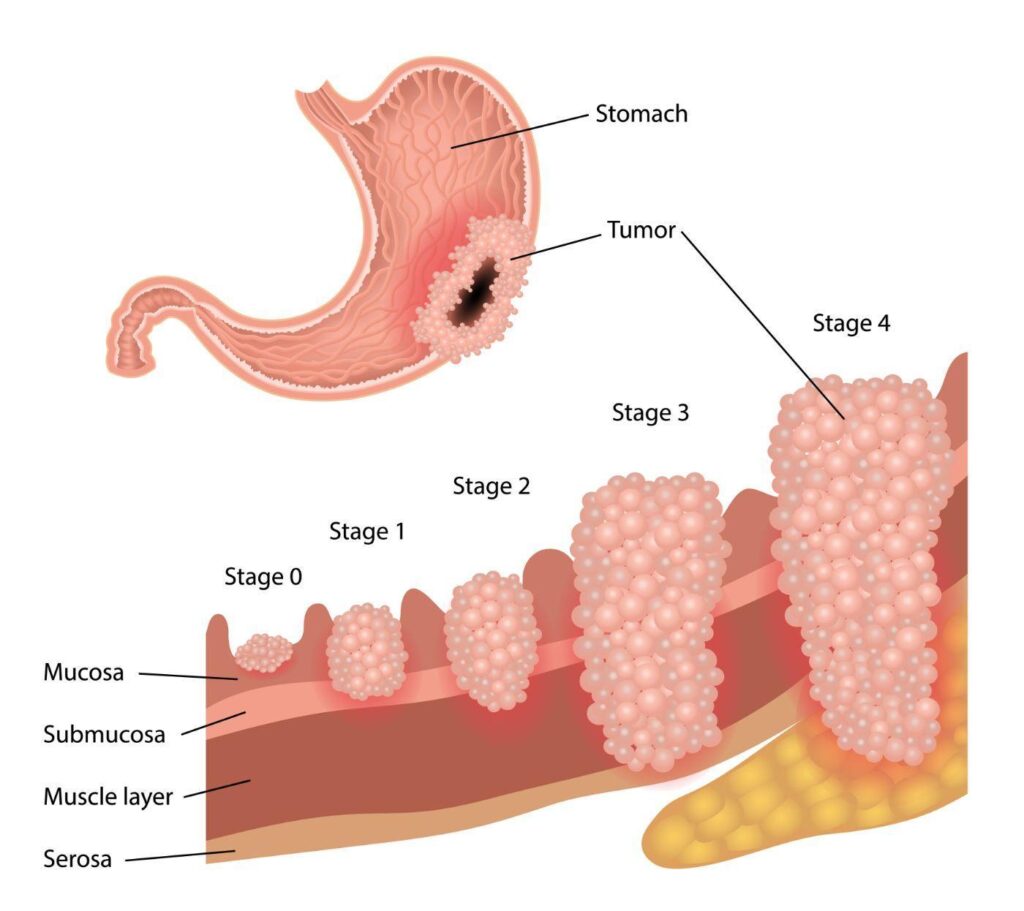
What is Laparoscopic GI Cancer Surgery?
Laparoscopic GI (Gastrointestinal) cancer surgery is a minimally invasive procedure designed to remove cancerous tumors from the stomach, intestines, liver, pancreas, and other digestive organs. Instead of making a large incision, this advanced technique uses small keyhole incisions, a high-definition camera (laparoscope), and precision instruments to perform complex cancer surgeries with greater accuracy and faster recovery.
Patients with stomach cancer, colon cancer, esophageal cancer, liver cancer, and pancreatic cancer can greatly benefit from laparoscopic GI surgery, which offers less pain, minimal scarring, shorter hospital stays, and quicker return to daily life.
Why Choose Laparoscopic Surgery for GI Cancer?
Laparoscopic surgery is revolutionizing cancer treatment by providing a safer and more effective alternative to traditional open surgery. Key benefits include:






This patient-friendly approach is ideal for treating various GI cancers while preserving healthy tissues and ensuring better post-surgical quality of life.
Types of GI Cancers Treated with Laparoscopic Surgery
Laparoscopic GI cancer surgery is used to treat several types of gastrointestinal cancers, including:
1. Stomach (Gastric) Cancer
Laparoscopic gastrectomy is performed to remove part or all of the stomach affected by cancer while ensuring a quicker recovery compared to open surgery.
2. Colorectal Cancer
Laparoscopic colectomy or proctectomy effectively removes cancerous portions of the colon and rectum with minimal disruption to bowel function.
3. Esophageal Cancer
Minimally invasive esophagectomy is used to remove affected portions of the esophagus, improving swallowing and digestion post-surgery.
4. Liver Cancer & Tumors
Laparoscopic liver resection allows for the precise removal of cancerous lesions while preserving liver function.
5. Pancreatic Cancer
Laparoscopic pancreaticoduodenectomy (Whipple procedure) is an advanced option for patients with pancreatic cancer, ensuring less postoperative pain and quicker healing.
6. Small Intestine Cancer
Laparoscopic resection effectively treats tumors in the small intestine while maintaining digestive efficiency.
Recovery After Laparoscopic GI Cancer Surgery
Most patients stay in the hospital for 3-7 days, depending on the complexity of the surgery. Recovery guidelines include:
- Pain Management – Medications to ensure comfort.
- Gradual Diet Progression – Starting with liquids and soft foods before transitioning to a normal diet.
- Early Mobilization – Light walking to promote healing and prevent complications.
- Regular Follow-ups – To monitor recovery and prevent recurrence.
Many patients return to daily activities within 2-4 weeks, with long-term cancer management involving regular screenings, lifestyle adjustments, and supportive care.
Is Laparoscopic GI Cancer Surgery Right for You?
While laparoscopic GI surgery is an excellent option for many cancer patients, not everyone is a candidate. The suitability of the procedure depends on cancer stage, tumor location, previous surgeries, and overall health. A consultation with an experienced Laparoscopic GI Cancer Surgeon will help determine the best treatment plan for you.
Why Choose Us for Laparoscopic GI Cancer Surgery?
Patients trust us for expert GI cancer treatment because we offer:





We are committed to delivering the best possible outcomes with minimally invasive, high-precision surgical techniques.
